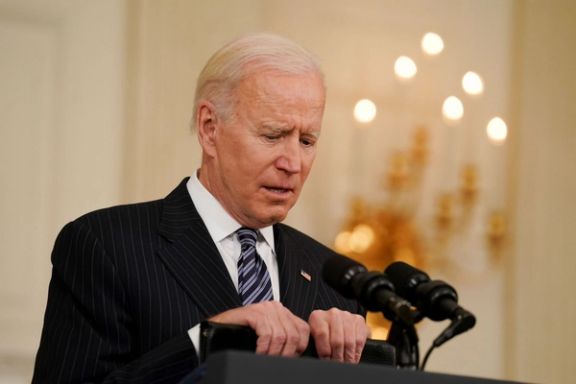Many See Biden's Iran Hostage Deal As Encouraging Enemies

As the White House welcomed the possible release of US hostages in Iran, critics called the $6 billion to be freed in exchange the biggest ransom ever paid by the United States.

As the White House welcomed the possible release of US hostages in Iran, critics called the $6 billion to be freed in exchange the biggest ransom ever paid by the United States.
Iran immediately corrected the $6-billion amount mentioned by Western media and said that in fact $9 billion was freed, including close to $3 billion frozen in Iraqi banks in addition to $6 billion held by South Korea. In fact, Washington freed the frozen funds in Iraq in June, possibly as the first concession to Tehran in negotiations that seem to have reached a conclusion.
Iranian government media on Friday made it clear that no prisoner will leave Iran until all the money from South Korea is transferred to special accounts in Qatar.
The Biden administration to cushion the negative impact of what is seen as a ransom payment, emphasized that no cash will reach the Iranian government and that the funds will only be disbursed to pay for humanitarian needs, but the exact mechanics of the scheme remain unclear.
The Iranians who see themselves as the big winners in hostage diplomacy, which has often paid off in the past four decades, even claimed that they will be the ones who will decide the fate of the money.
“The Islamic Republic will decide how to use the released funds, and these funds will be appropriated for the various needs of the country by the appropriate authorities,” the foreign ministry said in a statement on Friday.
Mohammad Jamshidi, a top aide to President Ebrahim Raisi, was quoted by the official government news agency IRNA that American prisoners will remain in Iran until all the funds from South Korea are released. Iranian media said that the funds will be exchanged from Korean currency into euros and kept in special accounts in Qatar’s central bank. The White House thanked the Qataris for their good offices in helping secure the deal.
Secretary of State Antony Blinken said on Thursday that the release of five Americans from prison in Iran was a "positive step" and the beginning of a process that he expects will lead to their return to the United States.
Blinken told reporters at a news conference after a meeting with his Mexican counterpart that the State Department had spoken with the five Americans on Thursday and that he was not aware of any other Americans still detained in Iran.
Iranian American activists were deeply dismayed by the Biden administration’s decision to provide a significant financial boost to the clerical regime, which is facing a serious economic crisis.
Amir Hamidi, a former US government official and a political consultant in Washington DC tweeted, “Allocating a staggering $6 billion to Iran amounts to facilitating the transfer of American hostages to a new detention facility, which is an utterly unacceptable concession. We must unwaveringly uphold the principle of not negotiating with terrorists or rewarding hostage-taking.”
Republican law makers almost immediately responded by accusing the Biden administration of caving in to Iran’s hostage diplomacy.
Senator Bill Hagerty (R-TN) said, “The release of American hostages is great and welcome news, But Biden’s policies encourage more hostage taking…The ransom is now $1.2 billion per hostage. Russia and China are taking note.”
Rep. Joe Wilson (R- S. Carolina) posted that “The terrorist regime in Tehran just received a gift of $6 billion from the Biden administration. Biden is showing our adversaries how to evade sanctions & is threatening the safety of Americans around the world.”
The debate around the administration’s Iran policy will take a sharper turn with the hostage deal and will probably become an issue in the 2024 elections. However, President Joe Biden seems to have succeeded in putting a lot of distance between the controversial decision and the election 15 months away.